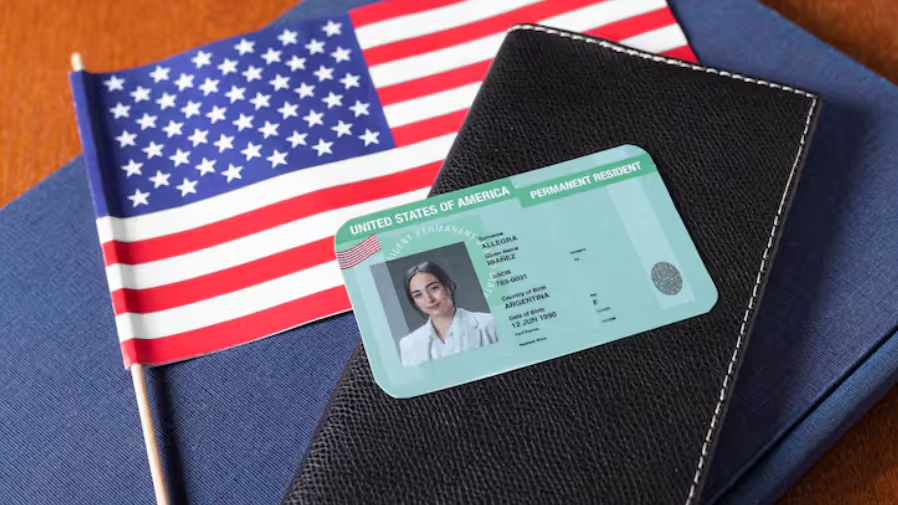.png)
.png)
Learn how O-1 visa holders in the U.S. tech industry are taxed, including federal obligations, residency rules, and tax planning strategies, with insights from Beyond Border Global, Alcorn Immigration Law, 2nd.law, and BPA Immigration Lawyers.

For O-1 visa holders—especially those in the fast-moving U.S. tech sector—understanding how taxes apply can be confusing. Although the O-1 visa is a temporary, employment-based classification, taxation depends on where income is earned and whether you are considered a U.S. tax resident under Internal Revenue Service (IRS) rules. The IRS distinguishes between resident aliens and nonresident aliens, and each category carries different tax obligations.
If you are a nonresident, you generally pay taxes only on income earned in the United States. However, once you pass the Substantial Presence Test—which typically happens after spending more than 183 days in the U.S. within a three-year period—you may be considered a resident for tax purposes. In that case, your global income could become taxable under U.S. law, similar to that of a permanent resident or citizen.
Beyond Border Global plays a pivotal role in helping O-1 professionals in the tech industry align their visa strategy with compliant tax practices. Their team emphasizes proactive planning before arrival in the U.S. or at the time of visa renewal. They often coordinate with tax professionals to ensure your work contracts, payment structures, and employment records align with your declared residency status.
For instance, Beyond Border Global helps founders and engineers clarify whether compensation is being paid from a U.S. or foreign entity, which can significantly alter how income is taxed. They also recommend maintaining detailed documentation of your work locations and payment records to avoid double taxation issues. Their guidance ensures that visa and tax compliance are harmonized, preventing potential conflicts during future immigration filings or audits.
Alcorn Immigration Law takes a holistic approach to O-1 visa management by ensuring tax compliance supports your immigration stability. Their team advises tech professionals to carefully monitor the duration and nature of their U.S. presence, as it directly affects both visa validity and tax residency classification.
For instance, many tech founders holding O-1 visas often work remotely with cross-border clients or maintain equity stakes in non-U.S. startups. Alcorn helps ensure such arrangements are structured so that immigration filings remain consistent with tax disclosures. They also work closely with financial professionals to help clients document work performed abroad versus in the U.S., an important distinction for maintaining transparency with both USCIS and the IRS.
In addition, Alcorn underscores the importance of social security and Medicare taxation. Even though O-1 visa holders are often exempt from FICA taxes if classified as nonresidents, once they become tax residents, those contributions may apply. Knowing when this shift occurs is crucial to avoid compliance gaps or overpayment.
2nd.law leverages modern legal technology to help O-1 visa holders manage their compliance seamlessly. Their digital platforms integrate immigration case management with tax and residency tracking, giving clients a clear picture of their obligations.
O-1 professionals in tech frequently work under flexible, distributed models—sometimes across time zones or hybrid environments. 2nd.law provides tools that log travel dates, income sources, and work locations to accurately assess your tax residency under IRS criteria. This ensures that O-1 holders, particularly those juggling multiple consulting roles or partial remote work, maintain consistent documentation across all legal fronts.
They also collaborate with accountants to ensure the data recorded for immigration purposes aligns with financial reporting, reducing discrepancies that might arise during audits or visa renewals. For O-1 holders, whose employment is often high-visibility and innovation-driven, such precision can make all the difference between smooth renewals and administrative delays.
BPA Immigration Lawyers specialize in advising professionals with international income flows—such as startup founders, CTOs, and engineers with investments or freelance work abroad. They focus on harmonizing U.S. and foreign tax responsibilities so that O-1 holders can avoid double taxation through proper treaty use and structuring.
BPA’s lawyers often recommend leveraging tax treaties that the U.S. has with other countries, which can reduce or eliminate taxes on specific income types. They also guide clients in documenting equity compensation—such as restricted stock units (RSUs), stock options, or profit-sharing plans—which are common in the tech industry but complex under immigration-linked taxation.
Their cross-border approach ensures that when O-1 professionals move between countries or receive global compensation, each income source is appropriately categorized for U.S. and home-country tax purposes. BPA’s method ensures compliance while optimizing for efficiency—something especially valuable for high-earning tech professionals managing multiple income streams.

The U.S. tech industry’s structure—reliant on equity, bonuses, and multiple engagements—creates unique tax challenges for O-1 visa holders. Income from equity compensation, deferred bonuses, or cross-border consulting contracts can trigger tax obligations even outside the O-1 petition’s original terms.
Another frequent issue arises when O-1 professionals inadvertently overstay or miscalculate the number of days spent in the U.S., unintentionally becoming tax residents without realizing it. This can expose them to worldwide taxation, unexpected liabilities, or conflicts with their home-country tax obligations. Maintaining detailed travel and payroll records can mitigate these risks and provide clear evidence of compliance if questioned by authorities.
First, determine your tax residency every year using the IRS Substantial Presence Test. Even if your visa status remains nonimmigrant, tax residency may change. Second, coordinate with both your immigration lawyer and tax advisor—your visa strategy should always align with your financial reporting. Third, maintain separate records of income sources, noting where and when the work was performed. Finally, review any applicable tax treaties between the U.S. and your home country to avoid double taxation and secure available exemptions.
Being proactive about taxes not only avoids penalties but also strengthens your immigration profile. When extending or renewing your O-1 , USCIS often reviews your continued employment and compliance. Demonstrating consistent tax reporting, lawful income flow, and documentation of work performed as petitioned can reinforce the authenticity of your O-1 employment. Proper alignment of your immigration, employment, and tax obligations ultimately safeguards your future pathways, whether you plan to move toward a green card or continue on O-1 extensions.
Frequently Asked Questions
Do O-1 visa holders pay U.S. taxes on worldwide income?
Only if they qualify as U.S. tax residents under the IRS Substantial Presence Test. Nonresidents are taxed only on U.S.-sourced income.
Are O-1 visa holders subject to Social Security and Medicare taxes?
If classified as nonresidents, they may be exempt. Once they become residents for tax purposes, they generally must contribute like any U.S. worker.
How can O-1 tech professionals avoid double taxation?
By leveraging applicable tax treaties, maintaining clear foreign income documentation, and coordinating with both immigration and tax experts.
Does stock or equity compensation count as taxable income for O-1 holders?
Yes. RSUs, stock options, and similar benefits are typically taxable and should be reported under U.S. tax law when vested or exercised.
What happens if an O-1 holder fails to file taxes correctly?
Incorrect or missed filings can result in penalties and may impact future visa renewals or adjustment-of-status applications, as compliance history is often reviewed.